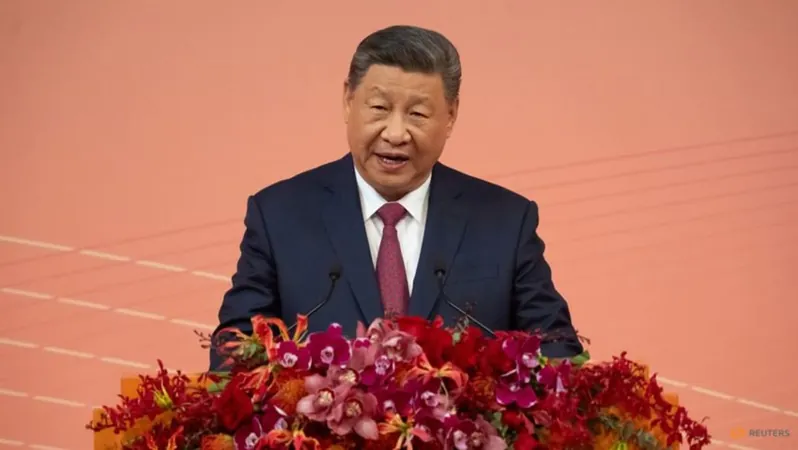
Xi Jinping Declares War on Corruption: China’s Ongoing Battle Intensifies!
2025-01-06
Author: Mei
Introduction
In a bold announcement on January 6, 2024, Chinese President Xi Jinping reiterated his unwavering commitment to an "all-out battle against corruption" during a critical meeting of the Communist Party's top disciplinary body in Beijing. This declaration comes as part of the nation's continuous effort to address the pervasive corruption that has long plagued various levels of government and institutions.
Xi Jinping's Commitment
Xi emphasized the need for tenacity and perseverance in this ongoing war, stating, "We must always maintain our tenacity and perseverance ... and resolutely fight the tough, protracted, and all-out battle against corruption." His administration has been at the forefront of a comprehensive anti-corruption campaign since he took power over a decade ago, aiming to foster a culture of clean governance and accountability.
Supporters and Critics
Supporters of this campaign argue that it helps clean up the government and restore public trust. However, critics suggest that it also serves Xi’s political agenda, allowing him to eliminate rivals and consolidate power. This duality raises questions about the true motives behind the anti-corruption efforts.
Recent Developments and High-profile Cases
Recent developments illustrate the seriousness of this initiative. Just last November, the ruling Communist Party suspended Admiral Miao Hua, a high-ranking military official and a member of the influential Central Military Commission, for "serious violations of discipline," a term often associated with corruption. Miao’s investigation adds to a growing list of high-profile individuals, including two former defense ministers, caught in the government’s extensive anti-graft campaign, especially in the military sector.
Corruption as a Threat
During the meeting, Xi described corruption as "the biggest threat" to the Communist Party, acknowledging that the battle remains "grave and complex." Despite these efforts, incidents of corruption persist, indicating that rooting out these issues is an ongoing challenge. He pointed out the necessity of targeting the underlying conditions that facilitate graft, making clear that this is not just a matter of addressing individual cases.
Severe Consequences
In a stark reminder of the consequences of corrupt practices, China executed a former official from Inner Mongolia in December over charges related to bribery and the misappropriation of public funds. This drastic measure showcases the seriousness with which the country is treating corruption.
Wider Impact of the Campaign
Moreover, the far-reaching implications of the anti-corruption campaign have touched various sectors beyond politics. The realms of finance and sports are also under scrutiny, highlighted by the fall of former Chinese men’s national football coach Li Tie. His case reflects a broader trend where prominent figures from varied backgrounds are being investigated, emphasizing the regime’s expansive approach to its anti-corruption agenda.
Conclusion
As this campaign unfolds, it remains to be seen how effective these measures will be in cultivating a transparent and accountable governance model in China. Will Xi’s all-out battle against corruption succeed in restoring faith in the Communist Party, or will it ultimately serve as a tool for political maneuvering? Only time will tell, but the spotlight on corruption in China is brighter than ever!

 Brasil (PT)
Brasil (PT)
 Canada (EN)
Canada (EN)
 Chile (ES)
Chile (ES)
 Česko (CS)
Česko (CS)
 대한민국 (KO)
대한민국 (KO)
 España (ES)
España (ES)
 France (FR)
France (FR)
 Hong Kong (EN)
Hong Kong (EN)
 Italia (IT)
Italia (IT)
 日本 (JA)
日本 (JA)
 Magyarország (HU)
Magyarország (HU)
 Norge (NO)
Norge (NO)
 Polska (PL)
Polska (PL)
 Schweiz (DE)
Schweiz (DE)
 Singapore (EN)
Singapore (EN)
 Sverige (SV)
Sverige (SV)
 Suomi (FI)
Suomi (FI)
 Türkiye (TR)
Türkiye (TR)
 الإمارات العربية المتحدة (AR)
الإمارات العربية المتحدة (AR)